Are you excited about Christmas? Because I am, for sure! It is December, the most festive time of the year. Everywhere is beautifully decorated for Christmas, and this lovely atmosphere brings us more joy and impatience for the coming holidays. Everyone is going home to spend the holidays with their loved ones. Most Christmas celebrations in Bulgaria (as everywhere) usually happen around the table, where family and close friends gather. Food is the cornerstone of the Bulgarian Christmas holidays, but nowadays, the Christmas Eve dinner varies significantly from family to family. Below, I will guide you to the most famous traditional Bulgarian dishes for the Christmas Eve Dinner Celebration – the more traditional and religious part of Christmas. Let’s take a look at the kitchen now!
Quick Info About Christmas Eve in Bulgaria (Budni vecher, Бъдни вечер)
We celebrate Christmas on 25th December in Bulgaria, unlike most Orthodox Christians. We use the Gregorian calendar, while many Orthodox countries in Eastern Europe use the old Julian Calendar and celebrate Christmas on 7th January.
For some Bulgarians, the preparations for Christmas start with Advent, which lasts 40 days in the Orthodox Church and begins on 15th November. According to tradition, you should fast the whole day on 24th December if you are not so religious and haven’t fasted for the 40 days before. Christmas Eve (24.12-Budni Vecher, Бъдни вечер) is an important day, and we have the main Christmas meal in the evening. It is usually a rich vegan table with different dishes that have to be an odd number. The traditional Bulgarian dinner on Christmas Eve contains at least 7 traditional Bulgarian dishes. We prepare 9, 11, or, in some parts of the country, 12 because of the twelve months of the year. It encourages abundance in the coming year. We also put foods that swell – to increase the luck of those sitting around the table (beans, corn, wheat, and others.)
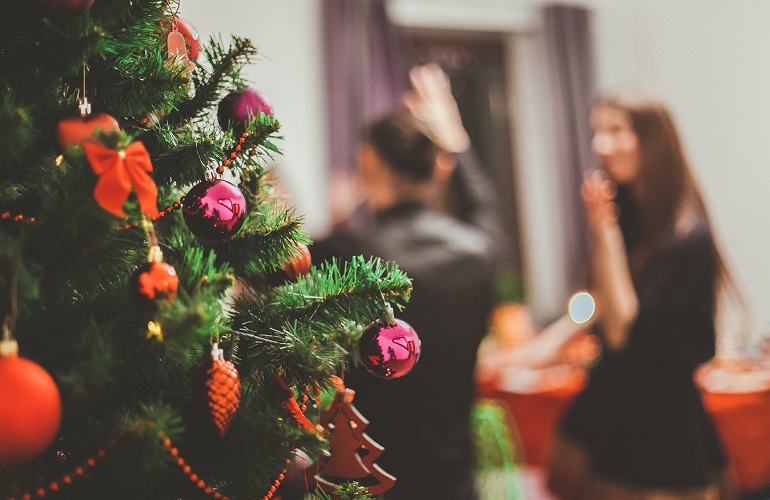
Traditional Bulgarian Dishes for Christmas Eve
When I think about Christmas Eve, I always associate it with a family gathering and a whole day cooking traditional Bulgarian dishes in the kitchen with my grandmother and mother. I really love these meatless variants, maybe because we mainly cook them for Christmas Eve. If you are Bulgarian, you know all of them. But if you are not or haven’t spent time in Bulgaria during these holidays, let me show you the most famous traditional Bulgarian Dishes for Christmas Eve.
1.Pitka / Pita (traditional Bulgarian bread)
Let’s start with the centerpiece of the Bulgarian festive table. This is the bread – our round flatbread (ok, maybe not so flat bun) – pita. We decorate it with an ornamental cross in the middle and put a hidden coin in it before baking. The elder of the family breaks the bread to share it among the family members, and whoever finds the coin in their piece will be rich and lucky in the coming year. This tradition symbolizes the hope for prosperity and good fortune in the upcoming year. Some families also put other fortunes, such as a clothes button, matchstick, and bean, which will reveal what the next year holds for each person.
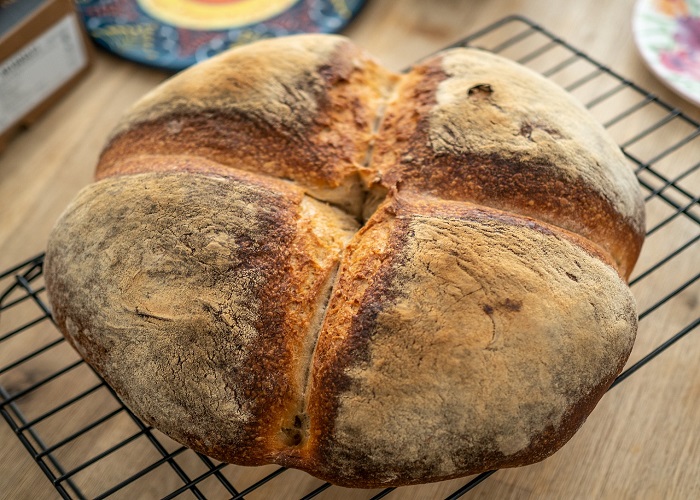
2.Sarmi (stuffed grape or cabbage leaves)
It’s the most famous traditional Bulgarian dish on Christmas Eve and my favorite. These are grape or cabbage leaves stuffed with rice, plums, and spices. You need to try them. Yummy!
3.Pulneni chushki (Stuffed peppers)
These are dried stuffed peppers similar to Sarmi (stuffed with rice or beans). We also add plums or raisins, which go well with the pepper skin.
4.Bobena Chorba (bean or lentil soup)
I am not a big fan of bean soup, but according to tradition, the coming year will be abundant and wealthy if there is a bean soup on the table. Another variant I love is a bean stew with many spices (salt, black pepper, vinegar, summer savory), which perfectly goes with the warm pita.
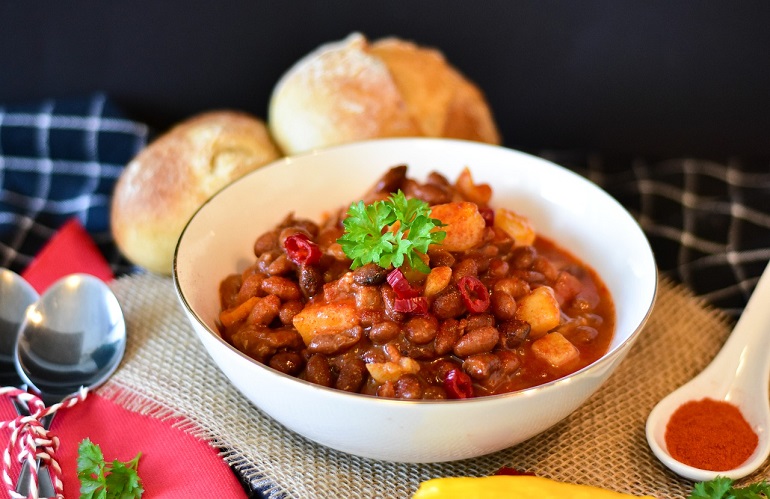
5.Turshia (pickles)
It is a sour mix of cabbage, cauliflower, carrots, peppers, and herbs marinated in vinegar for a few weeks. It combines very well with the traditional Bulgarian drink rakia.
6.Tikvenik (pumpkin banitza)
After all, there should be a sweet part on the Christmas Eve table, so life next year will be sweet. Roast Honey Pumpkin and Tikvenik are traditional Bulgarian dishes on Christmas Eve – so tasty pumpkin desserts.
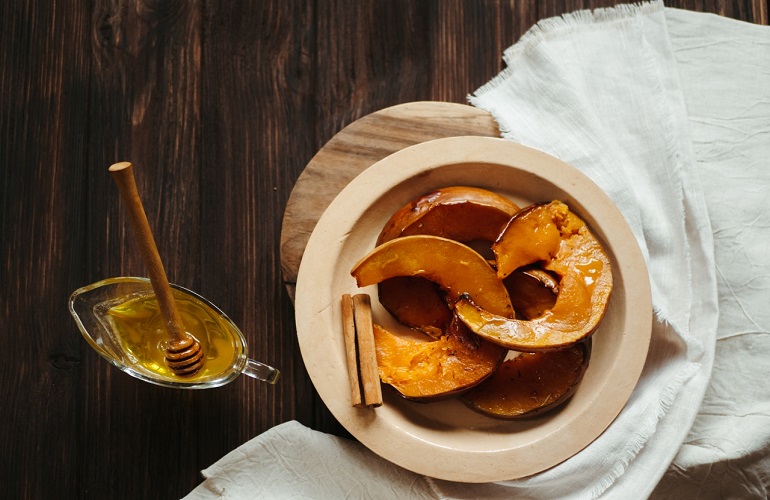
7.Boiled wheat
We prepare it with walnuts and honey, but you can also add sugar, cinnamon, vanilla sugar, and lemon zest. It symbolizes the connection between death and life.
8.Honey
For a sweet life.
9.Walnuts
Some people believe that walnuts predict fortune. So, we crack them to predict success or failure for the coming year. If your walnut is whole, you will have a good year, but if it’s empty or with a bad nut, you’ll have a bad year.
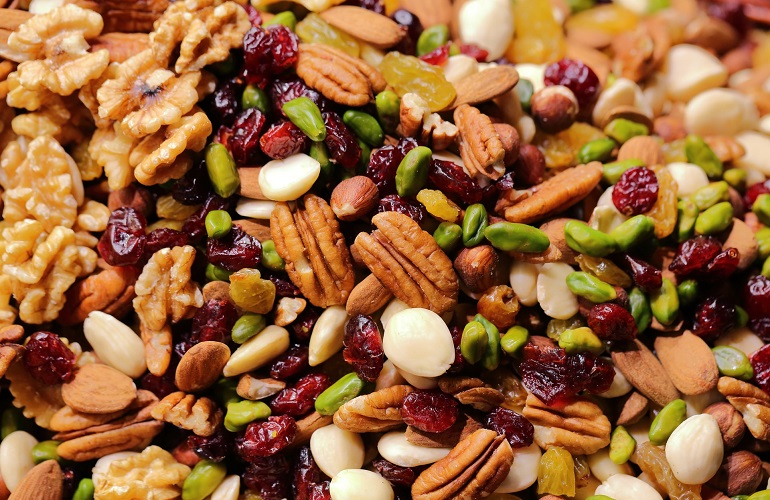
10.Honey with walnuts and garlic
You can make a tasty combination of both above as well. It goes very well with the delicious traditional Bulgarian pita. The three ingredients are traditionally thought to help strengthen the immune system, so this dish is a superfood during the cold winter. Of course, you can add other nuts as well.
11.Oshav (dried fruit tea/soup)
Traditionally, we put a lot of fruits on the Christmas Eve table, like oranges, bananas, apples, and tangerines. But we also prepare a traditional Bulgarian dish – a super easy soup from different dried fruits called Oshav. In this dried fruit compote, you can find dried plums, apples, apricots, pears, quinces, oranges. The resulting drink reminds me of cider/punch, usually drunk with the dessert.
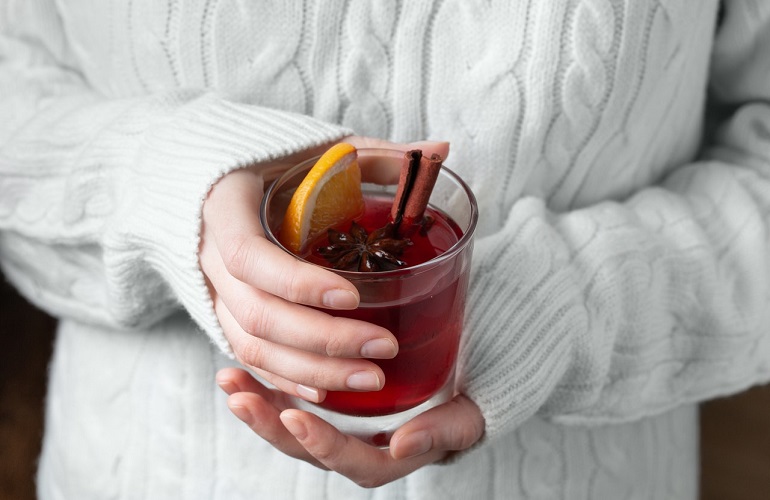
12.Drinks
Wine and rakia (Bulgarian brandy) are also part of the festive dinner. We prepare hot rakia with black pepper and honey. You should try it! Drink it hot!
We set apart a plate full of these traditional Bulgarian dishes from the Christmas Eve dinner. After dinner, the table is not cleaned but left with the food overnight. This tradition stems from the belief that Saint Mary and the ancestors’ spirits visit the house before Christmas morning. By leaving the table uncleared, we show respect and hospitality to these spiritual guests. This tradition also serves as a reminder of the importance of family and the joy of sharing a meal together. Then, on 25th December, the fast is broken, and people can eat meat again.
Recipes for Traditional Bulgarian Dishes for Christmas Eve Dinner Celebration
I mentioned the most famous traditional Bulgarian dishes for Christmas Eve dinner in Bulgaria that you can find on almost every feast table. Below, you can find some recipes to try something traditional Bulgarian or, if you are in Bulgaria, to know what to expect. Learn also how we celebrate Christmas in Bulgaria.
1.Recipe for Pitka (Number 1)
I have tried several recipes for a Christmas Eve Pitka, but this is my favorite one for the last few years.
Ingredients:
flour – 1 kg
water – 150 ml
yeast – 1/2 pack
salt – 1 tbsp
sugar – 2 tbsp
oil – 3 tbsp
water – 400 ml
Preparation:
Put the yeast in a bit of water and let it dissolve.
Meanwhile, mix the flour with salt, sugar, and oil.
Add the yeast and the water at room temperature. Knead the dough and leave it to rise in the heat until it doubles in volume. If the kitchen is not warm enough, you can use the oven at about 100°C. Leave the dough there for about 15 minutes, then take it out and divide it into equal parts, form buns, and decorate them.
Place them evenly apart in an oiled pan. Put the pan back in a warm place for about 15 minutes.
Then, pierce the dough with a fork and place it in an oven at 180°C to bake.
It’s ready in about an hour. Wrap it in a towel to keep it soft and tasty. The Pitka is ready!
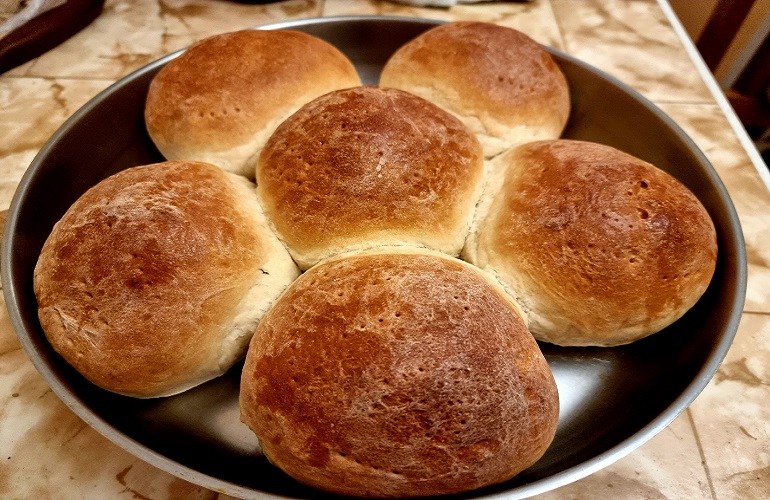
2.Recipe for Sarmi (Number 2)
Ingredients:
cabbage or grape leaves – about 12 – 15 leaves (depending on size)
rice – 200 grams
onion – 1 pc
carrots – 2 pcs. small
tomato sauce – 3 tbsp
raisins – 60 grams
olive oil – 3 tbsp
water – 400 ml
black pepper
paprika
summer savory
salt
Preparation:
Finely chop the onion and cook it in olive oil. Cut the carrots. Wash the rice and add it along with the water.
Stir all this, and when the rice softens slightly and absorbs the water, add the raisins, black pepper, tomato sauce, paprika, summer savory, and salt to taste.
With the ready stuffing, start shaping sarmi by placing the mixture on the leaves and twisting them.
If you prefer, you can replace the raisins with dried prunes.
You can also fill the dried red peppers with the same mixture (you will get Stuffed peppers – Pulneni chushki).
Arrange the sarmi in a saucepan, pour some water over them, and let them cook until ready.
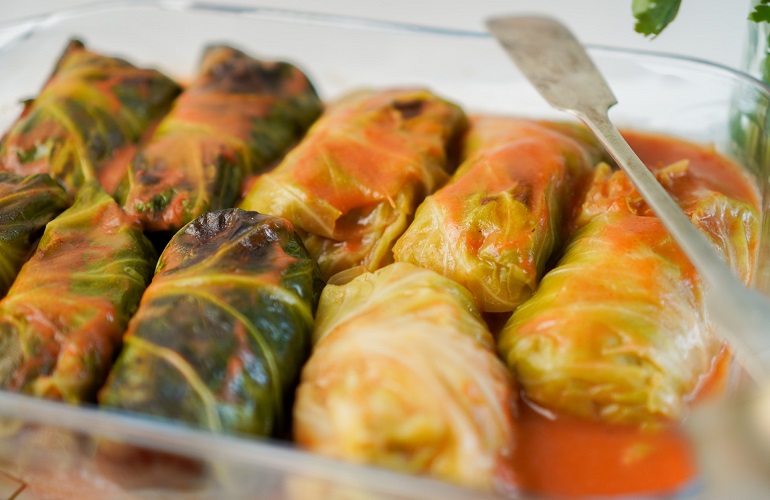
3.Recipe for Tikvenik (Number 6)
Ingredients:
phyllo dough – 1 package
pumpkin – 1 kg
nuts – 200 g
oil – 200 g
sugar – 250 g
cinnamon – 1 tsp
vanilla – 2 sachets
powdered sugar
Preparation:
The pumpkin is cleaned of seeds, peeled, and cut into pieces. Grate the pumpkin pieces.
In a deep and wide pan in half the oil, simmer the pumpkin, occasionally stirring until soft.
Remove from the heat and add the sugar, cinnamon, vanilla, and crushed walnuts.
Take two sheets of phyllo dough and spread with oil. Put the stuffing on the sheets and roll it up. Transfer to a pre-oiled pan.
Bake the tikvenik in a preheated 170-180°C for 40-45 minutes until golden brown.
After removing it from the oven, spray it with cold water and wrap it with a towel. When serving, the tikvenik can be sprinkled with powdered sugar if desired.
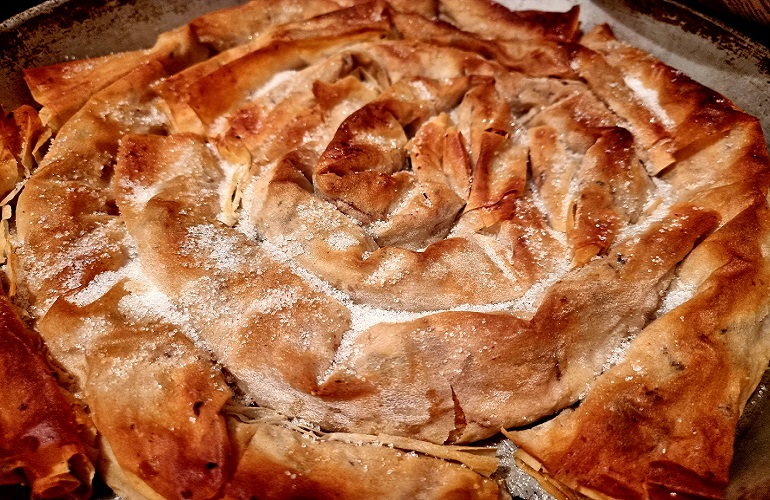
4.Recipe for Oshav (Number 11)
Ingredients:
500 g of dried fruits (plums, apples, apricots, cherries, pears, grapes, quinces…)
100 g of honey or 100 g of sugar
cinnamon, vanilla, cloves – optional
Preparation:
Wash the dried fruits and soak them in cold water for about 12 hours. Then, remove the fruit and strain the liquid. Pour it over the fruits again and cook until soft.
Add honey or sugar.
Serve chilled. Super easy, tasty juice!
Bulgarian Christmas Eve is more than just a festive meal—it’s a heartfelt tradition steeped in symbolism, unity, and love. Еvery dish tells a story of gratitude and hope for the year ahead. The ritual of breaking the pita with a hidden coin inside brings families together in a moment of joy and anticipation. At the same time, the abundance of vegetarian dishes reflects the spiritual importance of the day.
Whether exploring Bulgarian cuisine for the first time or reconnecting with ancestral traditions, these traditional Bulgarian dishes are a delicious way to celebrate Christmas. Why not include some of these recipes in your holiday menu this year? You’ll be savoring unique flavors and embracing the warm spirit of a culture rich in heritage and hospitality.
Ready to recreate the magic of a Bulgarian Christmas Eve? Check out our step-by-step recipes to bring these traditions to your table. I wish you a cozy, delicious, and joyous holiday season!
Inspired? Pin it for later!
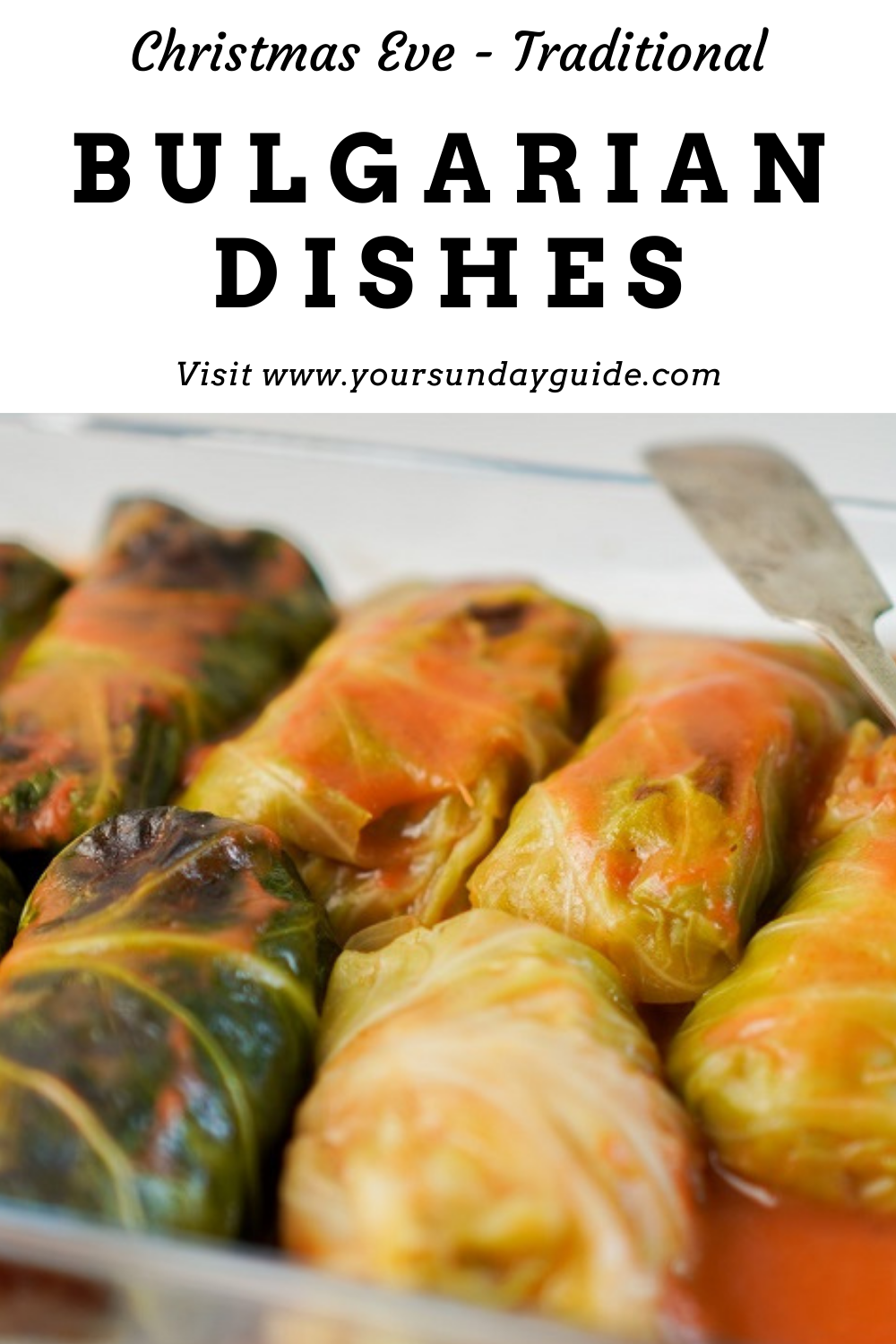
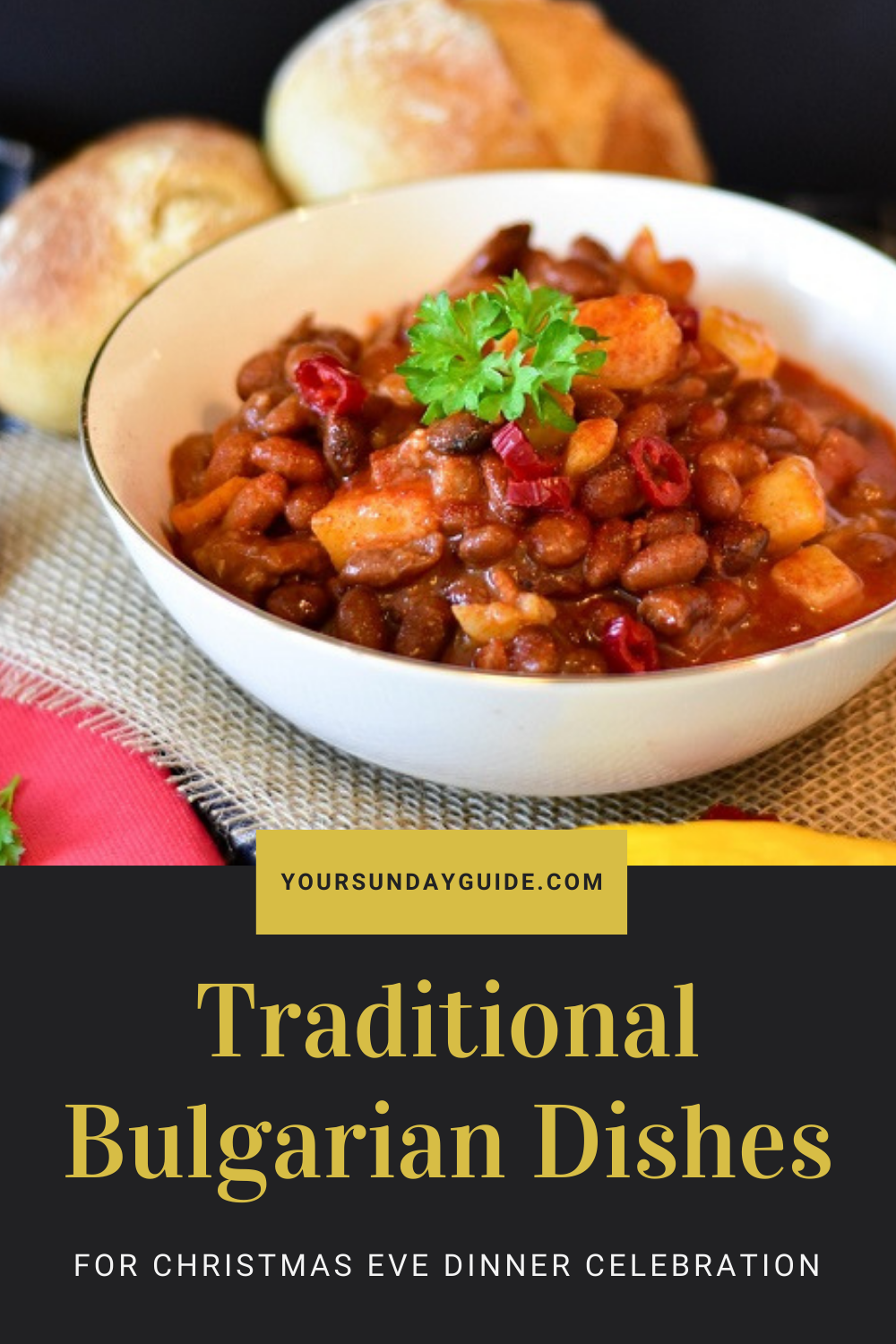



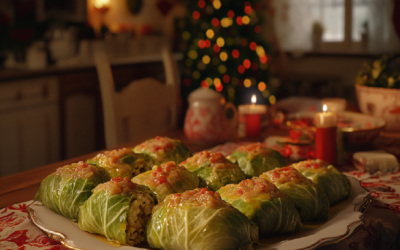
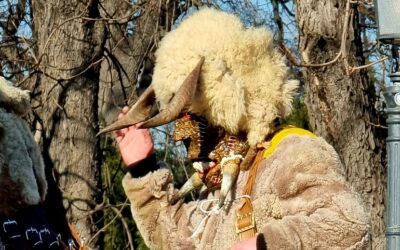


![Christmas in Bulgaria: Bulgarian Christmas Traditions [2024]](https://yoursundayguide.com/wp-content/uploads/2020/12/christmas-400x250.jpg.webp)
Thank you for the recipes going to start on them today.
Hi Lucy, thank you very much for your introduction to traditional Bulgarian dishes. We are going to prepare them today for our first Bulgarian Christmas Eve. 🎄